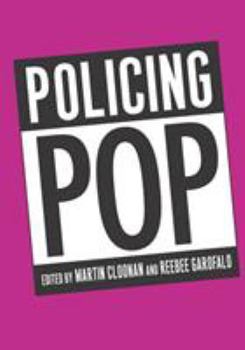Policing Pop
Select Format
Select Condition 
Book Overview
Fans and detractors of popular music tend to agree on one thing: popular music is a bellwether of an individual's political and cultural values. In the United States, for example, one cannot think of the counterculture apart from its music. For that reason, in virtually every country in the world, some group identifies popular music as a source of potential danger and wants to regulate it. Policing Pop looks into the many ways in which popular music and artists around the world are subjected to censorship, ranging from state control and repression to the efforts of special interest or religious groups to limit expression.The essays collected here focus on the forms of censorship as well as specific instances of how the state and other agencies have attempted to restrict the types of music produced, recorded and performed within a culture. Several show how even unsuccessful attempts to exert the power of the state can cause artists to self-censor. Others point to material that taxes even the most liberal defenders of free speech. Taken together, these essays demonstrate that censoring agents target popular music all over the world, and they raise questions about how artists and the public can resist the narrowing of cultural expression.
Format:Paperback
Language:English
ISBN:1566399904
ISBN13:9781566399906
Release Date:January 2003
Publisher:Temple University Press
Length:256 Pages
Weight:1.33 lbs.
Dimensions:0.6" x 7.1" x 10.0"
Customer Reviews
0 rating





